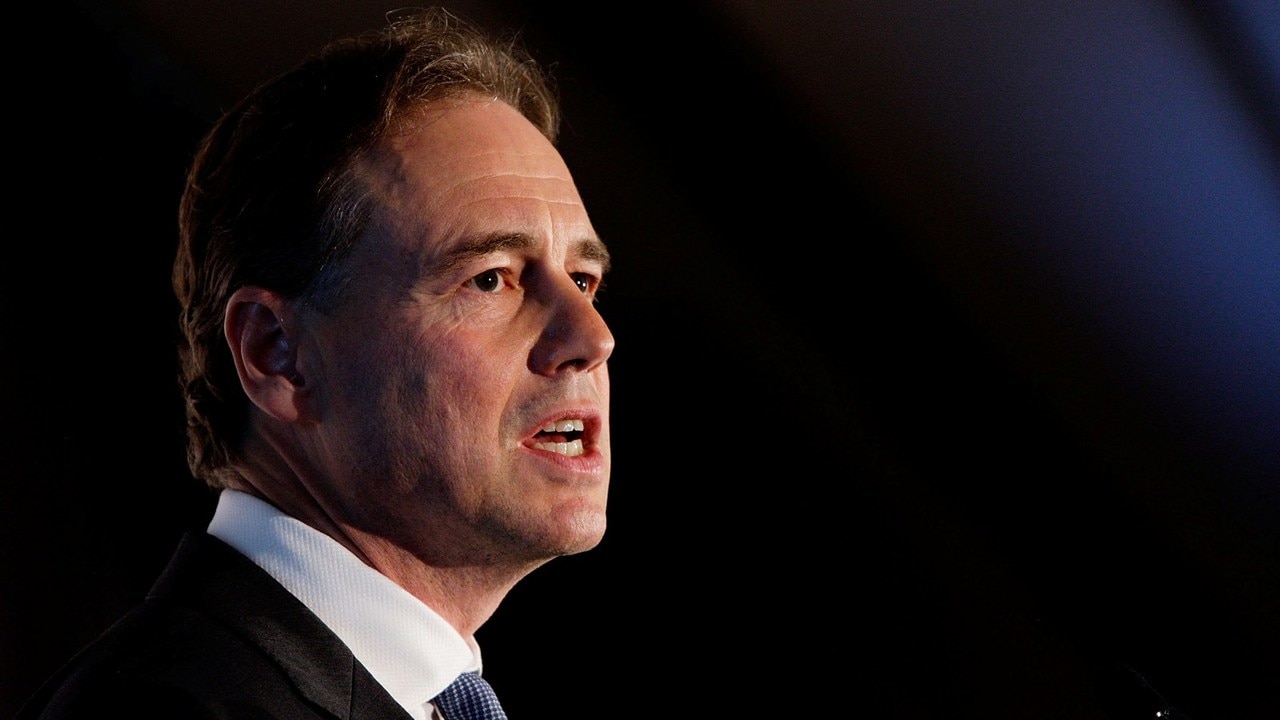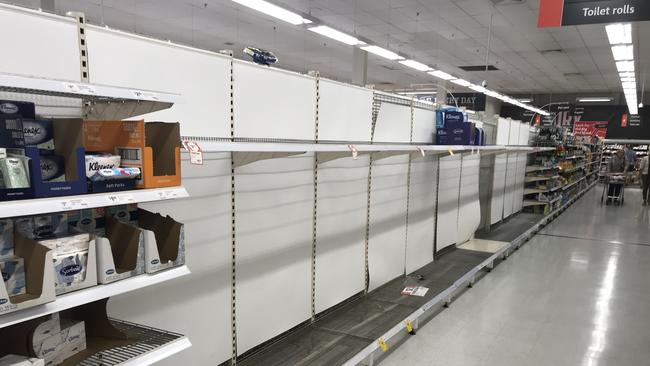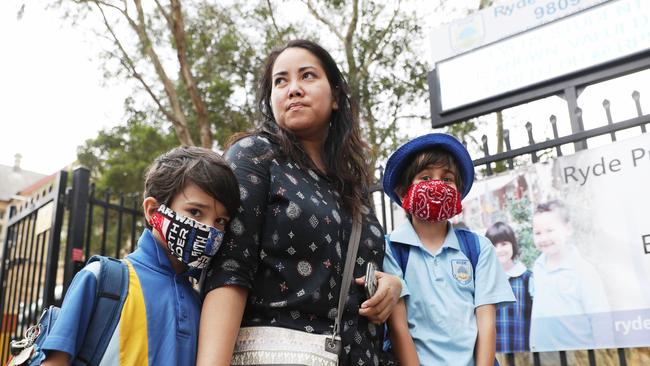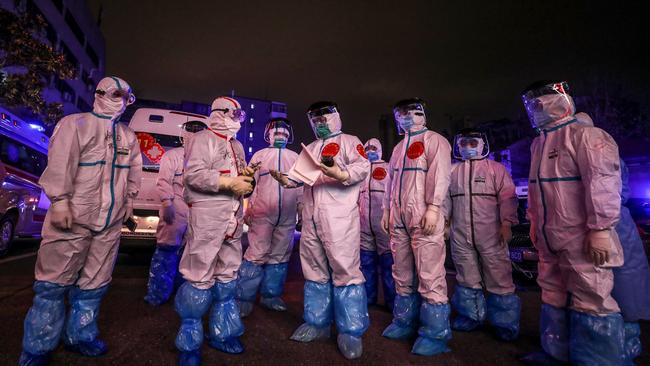Sydneysiders ‘lost all sense of reality’ in toilet paper madness
With coronavirus cases on the rise and “panic buying” leading to security gaurds being stationed in supermarket aisles to stop the mad crush, experts have explained why Sydneysiders are rushing to stock up on toilet paper specifically.

NSW
Don't miss out on the headlines from NSW. Followed categories will be added to My News.
Images of supermarket chaos and empty shelves have plenty of Sydneysiders wondering just why the panic buying of toilet paper has become so massive.
Dr Rohan Miller from the University of Sydney said the stashing phenomenon is a symptom of our herd behaviour.
“We’ve lost all sense of reality, we are all part of the human herd and we are just following the stampede,” Dr Miller said.
“We just don’t want to miss out, and we haven’t stopped to think with any objectivity how much toilet paper we will actually need,” he said.

Herd behaviour is often blamed for moments of market crisis, as herds of people flock to buy certain products or sell off stocks due to fear.
Dr Miller possible explanations for the flock to the supermarkets is fear of missing out, and the fear of the unknown.
“Information from overseas probably spread what was short in the market in affected countries, and that circulated here. We panic and think that despite all the evidence that says we won’t run out, that someone else knows something we don’t,” Dr Miller said.
He said there was “no doubt” that social media and community groups have contributed to the herd mentality.
“People think that stocking up is helping their family out by having some control over the unknown,” he said.
HOW TO TALK TO YOUR KIDS ABOUT CORONAVIRUS
As Australia reports its second local transmission of coronavirus and supermarket shelves sit empty after panic buying, it’s easy to forget the impact of the coronavirus fears on children.
While the government prepares for a potential pandemic, children are vulnerable to anxiety and panic because of what they see and hear around them.
Child psychologist Dr Anna McKinnon said she had seen a spike in anxious kids as young as seven coming to her about coronavirus.

“I’m seeing a lot of kids who are really scared and worried about it, as we all are,” Dr McKinnon said.
“Children are worrying about themselves dying and family members dying. Some children feel guilty and fearful about spending time around other children that are from cultures affected by the virus,” she said.
“There are a lot of rumours spreading through around schools, especially about children who have spent time in foreign countries that could be on the list.”
Dr McKinnon said two of the worst things parents could do for their children were panic or dismiss their children’s fears.

“I think parents need to be careful. If kids hear their parents catastrophising about the experience, they may start to catastrophise as they use their parents’ reactions to frame their understanding of the world,” Dr McKinnon said.
“Some parents might be saying ‘don’t worry about, nothing bad will happen’, but the child’s fear could actually grow because parents are not helping the child to think through it,” she said.
Instead, the best way to help children through their fears is to help them understand the facts, put the risk into perspective and keep calm.
“The photos and news headlines are very scary for children to see — some of the pictures are quite futuristic and confronting … it’s a balancing act for parents.
“They need to help the child to make sense of the experience, but not go overboard and talk about the issue all the time as this also has the potential to alarm the child and exacerbate the child’s fear,” she said.

Child psychologist Dr Andrew Greenfield said teaching your child basic hygiene, such as washing their hands and not touching their face, was important to keep their mind at ease.
“We need to be realistic in what we say. We don’t want to scare our children,” Dr Greenfield said.
“If kids get the common flu now they will tend to panic … when we start stockpiling toilet paper it’s just not helpful. That won’t help your kid’s anxiety.
“We need to keep ourselves in check — some people are just following like sheep and the mass hysteria is probably unfounded at this point,” he said.
